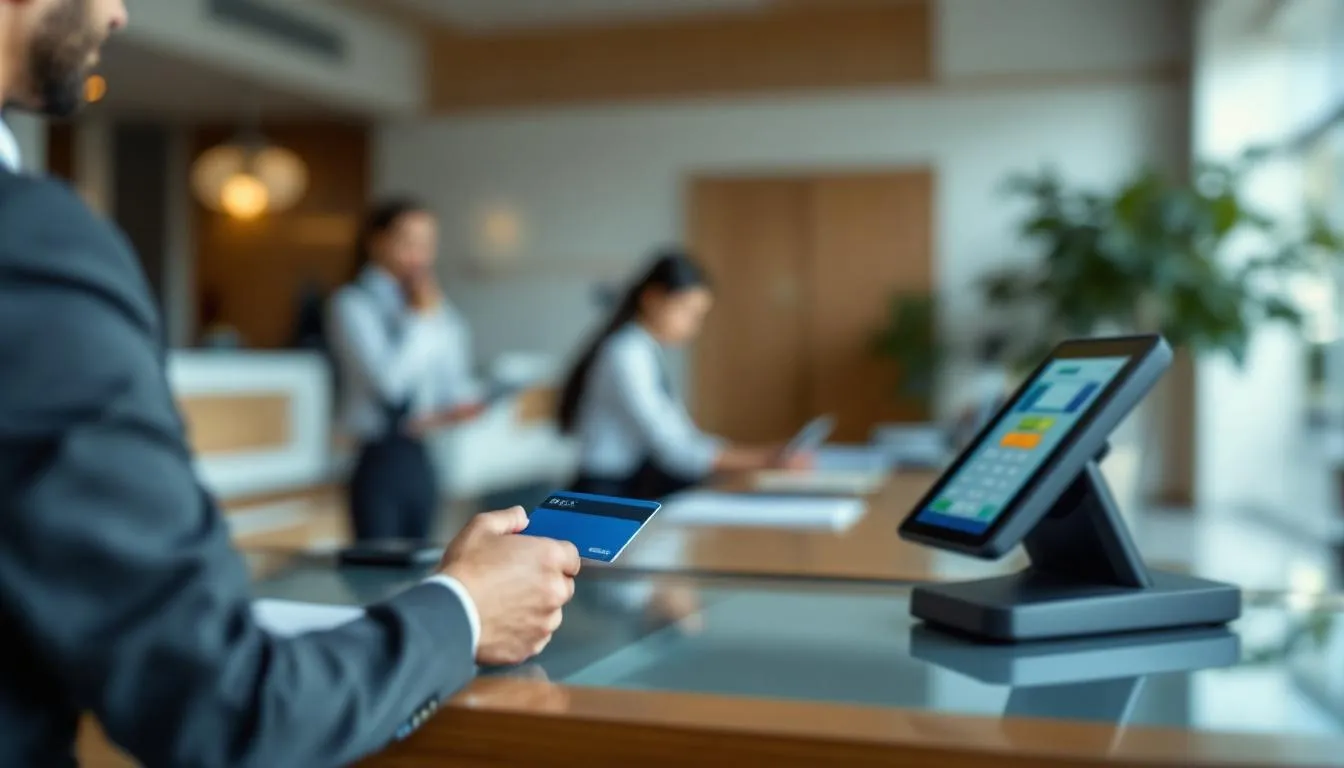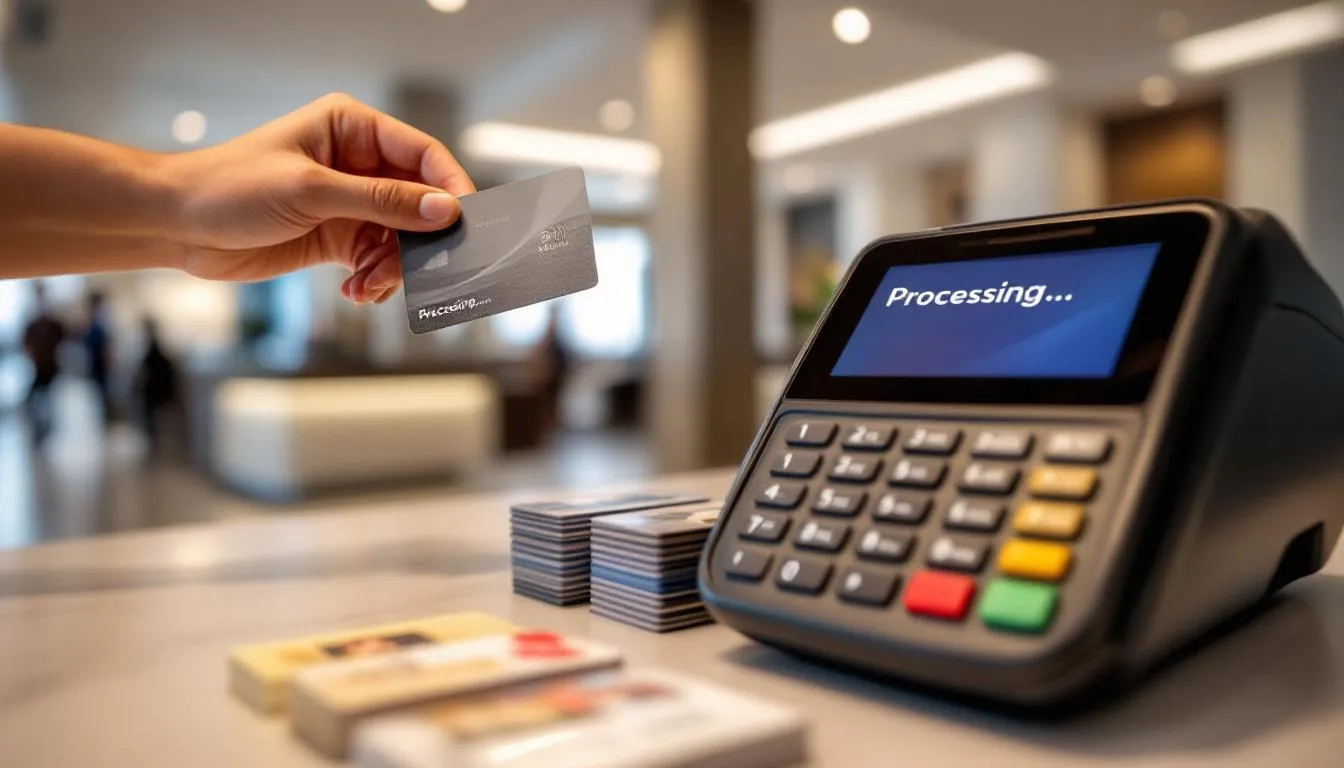Hotel Chargeback: Causes and Best Practices
 Mika Takahashi
Mika Takahashi Mika Takahashi
Mika TakahashiHotel chargebacks are one of the biggest financial headaches the hospitality industry faces today. When guests dispute charges through their credit card issuer, hotels don’t just lose the revenue from that booking—they also get hit with fees and a pile of administrative work that can quickly become overwhelming. Considering the hotel industry loses around $150 billion each year to fraud, and each hotel chargeback can cost between $190 and $200, it’s clear why understanding and preventing these transaction reversals is so important for hotel owners and managers.
Unlike retail, hotels deal with unique challenges when it comes to chargeback disputes. The service you provide is intangible—guests can’t return a night’s stay like they would a physical product. Plus, with so many bookings happening online, where the card isn’t physically present, chargebacks happen more often and can be tougher to fight. This guide will walk you through everything you need to know about hotel chargebacks—from the basics to practical prevention strategies that help protect your bottom line.

Simply put, a hotel chargeback happens when a customer’s bank or credit card company reverses a charge on the guest’s credit card statement after the cardholder disputes it. This is very different from a refund, which is something the hotel processes directly. With a chargeback, the bank steps in, reverses the transaction automatically, and then investigates the claim.
Understanding the difference between chargebacks and refunds is crucial. When you give a refund, you control the process and can usually work things out directly with your guest. But with chargebacks, the credit card companies and card networks take over, and the hotel has to respond to the dispute through their system.
The financial impact of chargebacks goes beyond just the amount lost on the original booking. On average, a hotel chargeback costs between $190 and $200—including the disputed amount, fees charged by payment processors (usually $20-$100 per case), administrative costs for collecting supporting documents, and sometimes penalties if your chargeback ratio gets too high. If disputes happen frequently, these costs add up fast.
Chargebacks are more common in hotels than in many other industries for a few reasons. Since hotel stays are services rather than physical products, it’s harder to prove that the service was delivered. Also, with so many online bookings (card-not-present transactions), there’s a higher risk of fraudulent transactions and friendly fraud—when guests dispute legitimate charges.
Knowing why guests file chargebacks helps you tackle the problem before it grows. Here are some of the main reasons hotel chargebacks happen:
Service quality issues are a big one. Guests might dispute charges if their room isn’t clean, facilities don’t work, or the amenities don’t match what was advertised. Sometimes, poor customer service or unresolved complaints push guests to file chargebacks instead of talking to hotel staff.
Billing discrepancies also cause many disputes. Double charges, incorrect room rates, or minibar fees guests didn’t authorize can lead to chargebacks. Processing errors during authorization or unexpected fees that weren’t clearly explained can prompt guests to contact their credit card issuer instead of the hotel. If guests see unfamiliar charges on their bank statement, they’re likely to dispute them.

Cancellation and reservation disputes often come from strict cancellation policies that guests either didn’t understand or think are unfair. Overbooking, system errors causing missed reservations, or changes to booking terms can all spark disputes. No show fee charges are especially contentious when guests claim they weren’t aware of the policy or had valid reasons for missing their booking.
Unauthorized or fraudulent transactions are another serious cause. Criminal fraud happens when stolen cards are used to book rooms, often discovered when the real cardholder checks their statements. Friendly fraud—where guests dispute charges they actually authorized—is even more common, accounting for about 71% of chargebacks labeled as fraudulent. These disputes are tough to fight because proving the legitimacy of the charge can be tricky.
Sometimes guests simply don’t recognize the hotel’s name on their credit card statement. If the payment descriptor is unclear or uses an abbreviation they don’t recognize, legitimate charges might get disputed because the cardholder thinks they’re unauthorized. This happens a lot with hotel chains that appear under corporate names rather than the specific property.
The chargeback process starts when a guest contacts their issuing bank to dispute a charge they believe is wrong, unauthorized, or related to poor service. Knowing how this process works is key for hotel managers who want to respond effectively and protect their revenue.
Guests usually have up to 120 days from the date of the transaction to file a chargeback, though this can vary depending on the reason code and card network rules. Once a chargeback is filed, the dispute process takes about 60 to 75 days to resolve, during which the disputed amount is held from the hotel’s account.
Several parties are involved: the cardholder (guest) initiates the dispute with their issuing bank; the issuing bank reviews the claim and, if valid, files the chargeback through the card network; the acquiring bank (your payment processor) notifies the hotel; and the card networks (Visa, Mastercard, Amex, etc.) oversee the process and enforce rules.
Card networks use reason codes to categorize disputes—there are 151 across the major payment systems. These codes help hotels understand why the chargeback was filed and how to respond.
Responding well to chargebacks means understanding the reason codes and meeting strict deadlines. Hotels usually have 7 to 30 days to submit their evidence after receiving a chargeback notification. Missing the deadline means automatic acceptance of the chargeback, no matter how good your evidence is. It’s critical that hotel staff know how urgent these deadlines are.
Gathering compelling evidence is the cornerstone of a successful defense. You need to put together all the documents that directly address the guest’s claim and prove the services were delivered. This evidence package, called a representment, should be well-organized and thorough.

Important evidence includes check-in and check-out records proving the guest stayed during the disputed period. Digital key card logs, security footage (when allowed), and signed registration forms help show the guest was present and received services. Housekeeping logs can also support claims that rooms were maintained properly.
Communication records like emails, phone calls, and chat transcripts show that the hotel addressed any issues during the stay. These can counter claims of poor service or lack of disclosure.
The rebuttal letter should be clear and factual, directly addressing each dispute point without emotional language. It should explain how your evidence disproves the guest’s claims and confirms the charges were valid.
Fraud costs the hotel industry billions annually, so prevention is key. Account takeover fraud targeting loyalty programs has surged, with criminals using stolen credentials to make bookings or redeem points. Card testing fraud is also common, where fraudsters make small bookings to test stolen cards before larger fraud.
Synthetic identity fraud, where fake and real info is combined to create fraudulent identities, is another challenge.
To fight these threats, many hotels use fraud detection systems that analyze booking patterns and payment behavior to flag suspicious activity—helping stop fraud before it happens while keeping the guest experience smooth.
Preventing chargebacks starts with clear communication and transparency. Make sure guests know exactly what they’re paying for and what to expect.

Modern tech tools can help hotels prevent chargebacks and manage disputes efficiently. Automated alerts notify management immediately when disputes arise, and centralized reporting tracks chargeback activity across locations.
Integrations with hotel payment service providers streamline evidence submission, reducing manual work and speeding up resolution.
Machine learning and fraud scoring analyze bookings for suspicious patterns, allowing hotels to review risky transactions while letting legitimate ones proceed.
Digital documentation automatically captures signatures, IDs, and policy acknowledgments, preserving crucial evidence.
Hotel chargebacks happen more often than in many other sectors because of the nature of the service and online bookings. Research shows 55% of US card fraud happens in hotels (excluding friendly fraud), highlighting the vulnerability of the industry.
Friendly fraud makes up about 71% of chargebacks labeled as fraudulent, where guests dispute charges they actually authorized. This makes defending chargebacks especially challenging.
The average hotel chargeback value is around $200, higher than the travel industry average of $120, reflecting the higher costs of hotel stays. Add on fees, staff time, and potential penalties, and the cost per chargeback can be significant.
A hotel with just 50 chargebacks a year could face over $15,000 in direct costs alone—not counting the operational headaches and risks to payment processing relationships.

Hotel chargebacks remain a challenge, but by understanding the process and using clear communication, strong documentation, technology, and proactive service, hotels can reduce their impact. Prevention is always better than defense—transparent policies, well-trained staff, and smart tech tools help protect revenue and keep guests happy.
Regularly reviewing and improving your chargeback prevention and response strategies will save you money, improve efficiency, and strengthen your relationships with payment processors. It’s an investment that pays off in the long run.